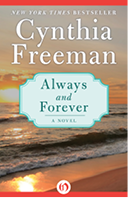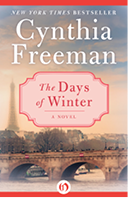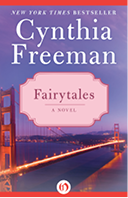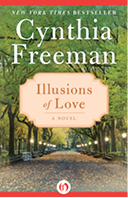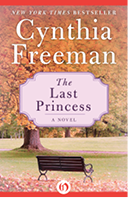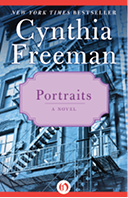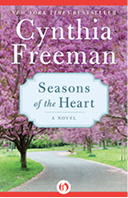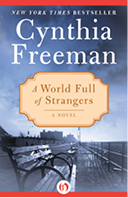The Last Princess (64 page)

“Never mind,” Birdie said. “That kind of a bummukeh every Jewish girl should only get.”
All night they had discussed the wedding. Let’s see, the chairs they would get from Aunt Fega, they would be married in synagogue and have the two families for supper.
“Are you sure it won’t be too much?” Katie asked.
“It wouldn’t be too hard,” Malka said, dismissing it as though this was the only fitting and proper thing for her first daughter, which she felt by now that Katie had become. They would bake cakes and cook all week. Later today she would go and see Mrs. Rezinetsky and they would plan the wedding together, it was only right. Katie would be married in a long veil and a white dress. It would be a wedding that Lilly Platt would envy, whose mother boasted that hers was the best wedding in the neighborhood.
“Believe me,” Malka said, “she would be plenty jealous.” And then remembered in all the excitement that they had to hire Mendel the photographer to take wedding pictures, and Yankel Levinsky, the great violinist, who played at all the bar mitzvahs and weddings, to be sure and be free next Saturday night (she was sure he’d be available). The week was a frenzy of shopping for Birdie’s rose taffeta dress, which she had to be squeezed into because the dress was a size 14 and she wore a 16. No problem, so from the big bow in the back, they took a little piece out which no one would notice and sewed it into the bust line, and of course David and Katie walked around as though the world had come to a standstill. Each day that went by brought them closer to that moment when they would be one.
Katie stood before the mirror, looking at her image as Birdie adjusted the veil. She felt as though she were gazing at a stranger, a beautiful lovely stranger who had come such a long distance to stand in this place, waiting for a life to begin with a young man who was to become her existence forever. She was caught up in the feeling that fate truly did predestine the lives of people. Oh, mama … dearest mama, have you intervened for me, is it you who have brought me to this day? Oh, God, I love you so, if only you were here, but you feel what I feel and know the love I have for David. Make me a good and devoted wife.
At that moment Malka walked in, dressed in the new blue rayon taffeta dress she’d bought at Bloom’s. (So never mind how she would pay it out.) This was one of the most important days of her life … she had lived to see Hannah’s child given in marriage. God works in mysterious ways. You see, Hannala, I gave a promise to you that has blessed me. Malka looked at Katie, then embraced her.
“You have been my mother, how can I thank you, what can I say that is enough?”
Malka took Katie’s face in her hands. “
Mein schön kind,
God calls on us so seldom to do good that when we do it the reward is ours. You should thank me for the happiness and naches? No,
mein schöne,
Katala, you have blessed us by becoming ours.” Katie was crying now. “It’s enough, mein Katala, remember a kallah shouldn’t go to the chuppa with red eyes, now finish dressing.” Malka looked at Katie once again, “Oy—what a bride. You’ll see, Lilly Platt’s mother will plotz!”
The little shul on Hester Street was filled to capacity by guests who had been invited and by guests who had not been invited, and it seemed, from Malka’s observation, there were more guests that had not been invited than those that were. Some chutzpa. Shnorrers! Now she was worrying if there would be enough chopped liver. She could just see Mrs. Rifkin filling up the brown paper sack, which she took with her to every wedding and bar mitvzah, filling it up to capacity with all the cookies, the strudel, the salami sandwiches to take home for her little Boris so he should have enough to eat for the next week Not only her, but all the rest of the yentas. Oy vay! There should only be enough for the family.
But now the moment had come when she was compelled to set aside such worldly thoughts. The first star had appeared in the heaven. Shabbas was over and night had come and it was time for Jacob on one side of Katie and herself on the other to walk Katie down to the end of the aisle, where David, alongside his parents, awaited his future wife. As the tapering candles were lit and handed to each of the parents under the blue velvet chuppa, the rabbi began the sacred and solemn ceremony in Hebrew. The bride and both sets of parents circled the groom seven times in the truest of orthodoxy. Next the parents stood at their separate sides and the last blessings for everlasting peace, devotion and love were said. The goblet was handed to the bride as she lifted her veil for the first time and drank from the cup offered her by her husband. The veil was then dropped so as not to reveal her face, and the goblet was handed back to David, who nervously drank from it. They were pronounced man and wife and, amid shouts of mazel tov, the wine goblet was stomped upon by David. He then picked up the veil once again, held it so only he could see his bride’s face in the candlelight, slipped it over her head and held and kissed her so long and so tenderly that everyone began to sing joyously, “Chassen kallah mazel tov.”
Buy
A World Full of Strangers
Now!
Cynthia Freeman (1915–1988) was the author of multiple bestselling novels, including
Come Pour the Wine
,
No Time for Tears
, and
The Last Princess
. Her novels sold more than twenty million copies worldwide. Born in New York City’s Lower East Side, she moved as a young child with her family to Northern California, where she grew up. She fell in love with and married her grandmother’s physician. After raising a family and becoming a successful interior decorator, a chronic illness forced her to adopt a more sedentary lifestyle. At the age of fifty-five, she began her literary career with the publication of
A World Full of Strangers
. Her love of San Francisco and her Jewish heritage drove her to write novels with the universal themes of survival, love, hate, self-discovery, joy, and pain, conveying the author’s steadfast belief in the ability of the human spirit to triumph over life’s sorrows.
All rights reserved, including without limitation the right to reproduce this ebook or any portion thereof in any form or by any means, whether electronic or mechanical, now known or hereinafter invented, without the express written permission of the publisher.
This is a work of fiction. Names, characters, places, events, and incidents either are the product of the author’s imagination or are used fictitiously. Any resemblance to actual persons, living or dead, businesses, companies, events, or locales is entirely coincidental.
Copyright © 1988 by Cynthia Freeman
Cover design by Mimi Bark
978-1-4804-3567-4
This edition published in 2013 by Open Road Integrated Media, Inc.
345 Hudson Street
New York, NY 10014

